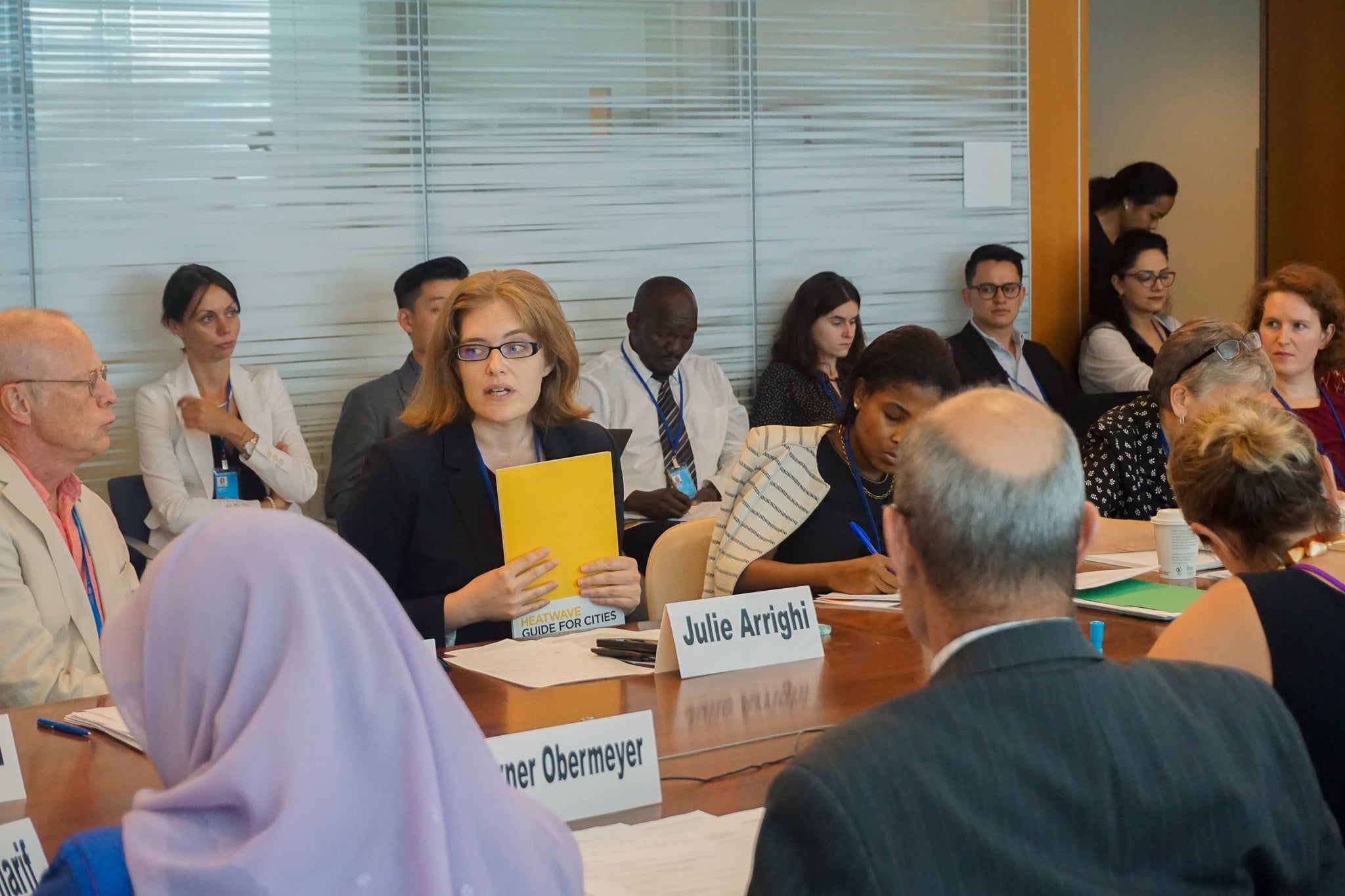New York, 26 July 2019 – The High Level Political Forum (HLPF) on Sustainable Development ran from 9 July - 18 July 2019. The event gathered more than two thousand participants to take stock of the world’s progress on the SDGs. The participants included representatives of Member States, business and civil society leaders, and heads of UN agencies and Programmes. UN-Habitat leadership was also be there to participate in this crucial gathering.
The world’s people are demanding “transformative change that is fair and sustainable,” Secretary-General António Guterres said at the event, calling on government leaders to use the upcoming slate of key United Nations meetings in September to “kickstart a decade of delivery and action for people and planet.” Mr. Guterres observed that the HLPF was “zeroing-in” on the power of SDG action “to support empowerment, equality and inclusion”, and urged the participants to “ratchet up the ambition and highlight the imperative of inclusion. The evidence is clear: Development is not sustainable if it is not fair and inclusive – and rising inequality hinders long-term growth,” he said.
The theme for the 2019 High Level Political Forum (HLPF) was "Empowering people and ensuring inclusiveness and equality." This years gathering focused on Sustainable Development Goal (SDG) 4 (education), SDG 8 (economic growth), SDG 10 (inequality), SDG 11 (climate change), SDG 16 (peaceful societies), and SDG 17 (partnerships). While all these goals have a clear urban dimension, they are also good examples on how good urbanization, as set out in SDG 11, can take us a long way towards achieving them. Well planned and well managed urbanization can help boost urban economies, while overcoming spatial inequalities and mitigating and adapting to climate change.
Mayors made a strong plea again to localize the SDGs and UN-Habitat helped organize the key events on “Local 2030”. UN-Habitat’s Executive Director, Ms. Maimunah Mohd Sharif, highlighted that cities are well placed and crucial to help deliver on global commitments. She also had a series of bilateral meetings with Mayors and Associations of Cities to explore how to effectively localize the SDGs.
The Executive Director took active part in the expanding dialogue, through the Kofi Annan Annual Faith Briefings, with faith-based organizations and their role in achieving the SDGs. The Ms. Sharif pointed out that cultural considerations are key to mobilize communities and translate the SDGs to a local inclusive agenda that leaves no one behind.
UN-Habitat highlighted the importance of “Addressing land and conflict, to achieve the SDGs through conflict-sensitive” development, building on the recently endorsed Secretary-General Guidance Note on Land and Conflict in a key event it organized with the Department of Political and Peacebuilding Affairs, the Department of Peace Operations, the Global Donor Working Group on Land and Switzerland. This illustrates the new type of partnerships needed to help deliver on UN-Habitat’s global vision that advances sustainable urbanization as a driver of development and peace.
Another important engagement focused on Climate Change (SDG13), In anticipation of the UN Secretary General’s Climate Summit this September where UN-Habitat is supporting the Infrastructure, Cities and Local Climate Action track, jointly with Turkey and Kenya. The Executive Director contributed to key events focusing on water and sanitation and heatwaves.
At the Extreme Heatwaves side event, Ms. Sharif noted that demographically, slum dwellers who have no access to cooling methods are amongst the most vulnerable groups. She spoke of the critical partnership between UN-Habitat, Kenya, Brazil, and Slum Dwellers International to scale up resilience responses to “climate emergencies which affect the urban poor the most.” Following a hotspot analysis of various cities in which heat waves were identified as a critical health hazard, UN-Habitat is promoting scalable, sustainable design practices to enable heat flow within buildings and to decrease the ecological footprint of cities.
Away from the HLPF, UN-Habitat also made progress on developing and strengthening its partnerships with centers of excellence in the US. It launched its first Executive Course with the New York University’s Marron Institute of Urban Management focusing on “Urban-Metro Economy and Finance in a Global World” and is exploring new partnerships with MIT’s Senseable Cities Lab.
